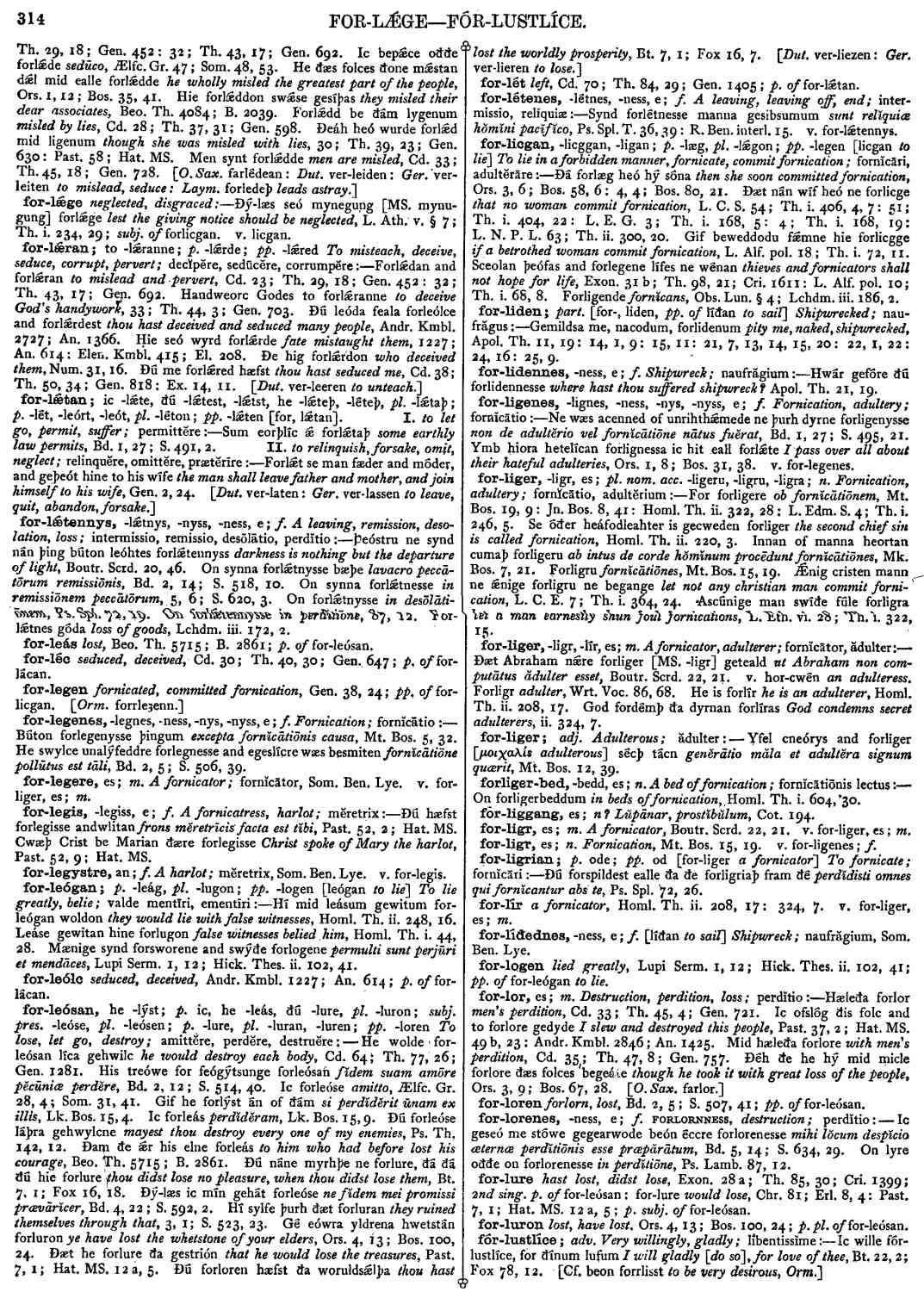for-leósan
- verb [ strong ]
-
— He wolde forleósan líca gehwilc
he would destroy each body,
- Cd. 64 ;
- Th. 77, 26 ;
- Gen. 1281.
-
His treowe for feógýtsunge forleósan
fĭdem suam amōre pĕcūniæ perdĕre,
- Bd. 2, 12 ;
- S. 514, 40.
-
Ic forleóse
amitto,
- Ælfc. Gr. 28, 4 ;
- Som. 31, 41.
-
Gif he forlýst an of ðám
si perdĭdĕrit ūnam ex illis,
- Lk. Bos. 15, 4.
-
Ic forleás
perdĭdĕram,
- Lk. Bos. 15, 9.
-
Ðú forleóse láþra gehwylcne
mayest thou destroy every one of my enemies,
- Ps. Th. 142, 12.
-
Ðam ðe ǽr his elne forleás
to him who had before lost his courage,
- Beo. Th. 5715 ;
- B. 2861.
-
Ðú náne myrhþe ne forlure, ðá ðá ðú hie forlure
thou didst lose no pleasure, when thou didst lose them,
- Bt. 7, 1 ;
- Fox 16, 18.
-
Ðý-læs ic mín gehát forleóse
ne fĭdem mei promissi prævārĭcer,
- Bd. 4, 22 ;
- S. 592, 2.
-
Hí sylfe þurh ðæt forluran
they ruined themselves through that,
- 3, 1 ;
- S. 523, 23.
-
Gé eówra yldrena hwetstán forluron
ye have lost the whetstone of your elders,
- Ors. 4, 13 ;
- Bos. 100, 24.
-
Ðæt he forlure ða gestrión
that he would lose the treasures,
- Past. 7, 1 ;
- Hat. MS. 12 a, 5.
-
Ðú forloren hæfst ða woruldsǽlþa
thou hast lost the worldly prosperity,
- Bt. 7, 1 ;
- Fox 16, 7.
Bosworth, Joseph. “for-leósan.” In An Anglo-Saxon Dictionary Online, edited by Thomas Northcote Toller, Christ Sean, and Ondřej Tichy. Prague: Faculty of Arts, Charles University, 2014. https://bosworthtoller.com/11580.
Checked: 1